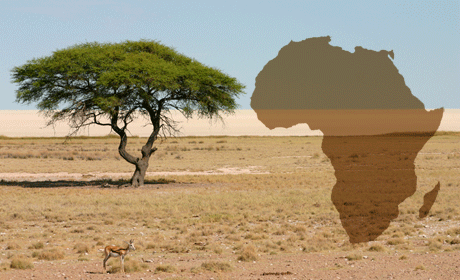Obedih
These days one cannot pick up any mainstream newspaper or magazine and fail to find another high profile figure endorsing Africa- from the high profile celebrities (adopting the next available African child) to politicians, tourists and scientists. From East and West, these groups seem to have rather rekindled affection for Africa; its people’s fantastic sense of optimism and hospitality not to mention whatever riches are still lying beneath its soil.
Can Africa really be branded? Well, in reality, not only products and services (BMW, MTN, McKinsey etc) but destinations (Ibiza – party destination; Paris – the romantic destination or Kenya – the land of safari) and anyone (Nelson Mandela, Neil Armstrong, Mahatma Ghandi, Che Guevara) can be branded. These are brands because of what they do or did; how they behave or behaved; and most importantly, because of what others say or said about them.
So country advertising is not branding, it may impart some great visuals and possible facts about the country but more often than not, many have tried to advertise themselves away from the truth – this is called propaganda and it never works long-term.
So lets look at some quick facts about Africa in numbers:
Africa is the world’s second largest and second most populous continent, after Asia, it accounts for about 14.72% of the world’s human population. According to some recent reports there are some 118million Internet users across the continent. In 2000, there were just 4 million. In Kenya over 350,000 people were reported to be using the IDEOS Android Smartphone, which costs US $80 in 2010. Consider, for a moment, that 40% of the population live on less than two dollars a day….
Portland Communication’s Kenya office and media platform Tweetminster noted that in the last three months of 2011, Africa’s biggest economy, South Africa, generated the most tweets, followed by Kenya, Nigeria, Egypt and Morocco (click here for infographic).
Rwanda, which has invested heavily in information technology, produced nearly 100,000 tweets – way more than its giant and impoverished neighbor, the Democratic Republic of Congo, with 2,408 tweets. What this means is that there has been fantastic progress but we haven’t even scratched the surface to enable us to maximize on our vast potential.
So I guess what is important is that the brand of Africa needs to be built from small economically relevant parts. Take the perceived brand of Germany – built on specific product brands such as Mercedes and BMW. Take Korea whose country brand has been turned around in record time thanks to Samsung, LG and Hyundai.
Africa’s problem is that we have no ingredient brands that play in the international arena save for Nelson Mandela, SAB and ….well other than some powerful regional brands such as MTN, Dangote Group and Stanbic, that’s about it. Companies that started in South Africa such as Anglo American, De Beers, Old Mutual and Investec are increasingly seen as British.
The successful branding of Africa depends on its entrepreneurs and enterprises setting their own agenda. As highlight by Jay Naidoo (Chairman: Global Alliance for Improved Nutrition at the Brand Africa Forum 2010):
China has an agenda in Africa. India has an agenda in Africa. The US and EU have an agenda in Africa. We are naïve to think that the people that come into our countries, even the ones who are here to help us, have no agenda. Everyone has an agenda. What is Africa’s agenda?
In conclusion; we can choose to tell the world about Africa – but if we really want to build our continent, we need to get the world talking about us – yes our people, yes our natural beauty, yes our history, yes our hope – but more importantly about our economic brands – but for this we need to actually develop and produce relevant products and services and then position them globally through properly strategized, designed and implemented branding.
This article was originally published by www.bantuobserver.com








